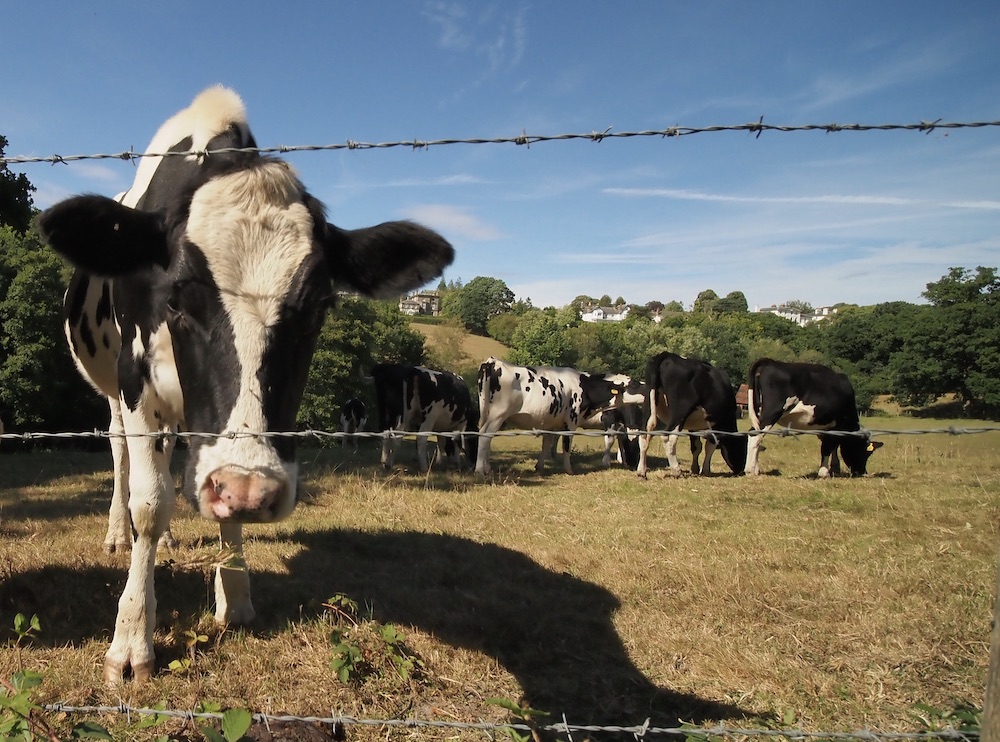People who buy milk substitutes made from soya for their latte or breakfast cereal are inadvertently harming the planet, the Sustainable Food Trust (SFT) claims.
As a new study concludes that milk produced from dairy cows which are fed diets containing soya bean meal is a more sustainable use of land than producing human drink products directly from soya beans, SFT says that ‘vegans and others would do better to switch to milk from cows, and especially cows traditionally grazed on grass, if they want to help make a more sustainable planet’.
The SFT says action – including a switch by UK livestock farmers to more local alternatives to soya meal and palm kernel meal – is essential to reduce ever-increasing demand and associated destruction of rainforest in the Amazon and South East Asia.
Currently, livestock farmers favour the use of soya bean meal over other high-protein feeds, with over a million tonnes used in UK livestock feed annually. Widespread availability, high level and high quality of protein make soya bean meal attractive for use in pig, poultry and dairy cow rations. Palm kernel meal has more limited use, predominantly in dairy cow rations, especially as a supplement to grazed pastures.
It also shows that drinking cows’ milk uses far less soya than drinks made from soya, because most of the milk comes from grass
The SFT argues that this practice should be reconsidered. Grass has a relatively high protein content and adding palm kernel meal to the diet, it says, results in excessive nitrogen excretion and pollution of both air and water.
The authors of the new study calculate that about 85 litres of milk is produced in the UK for every kilo of soya bean meal consumed by dairy cows. In contrast, no more than 7.5 litres of soya drink are produced from a kilo of whole soya beans. As a result, drinking milk from cows in the UK uses 11 times less soya than consuming drinks made directly from soya. Use of soya could be cut further still, the SFT argues, ‘if farmers used more alternative sources of protein and consumers actively sought milk produced from cows that graze grass’.
The SFT notes that, in Europe as a whole, milk from cows is only four times more efficient than soya drinks in terms of soya use. The use of concentrates is higher because grass is a less productive crop in many countries than in the UK.
Patrick Holden, SFT chief executive, says: “This is an important study. It shows that livestock farmers could reduce their dependence on imported protein, which is produced at such a high environmental cost, and rely more on home produced feed. But it also shows that drinking cows’ milk uses far less soya than drinks made from soya, because most of the milk comes from grass. This highlights the importance of grass, a crop ideally suited to our climate and the grazing animals that turn it into high quality foods we can eat.”
In terms of greenhouse gases, producing a glass of dairy milk will result in almost three times more emissions than any plant-based alternative
Adding to the discussion, Matt Turner, spokesperson for The Vegan Society, says: “A landmark Oxford University study has illustrated quite clearly that the production of dairy milk is far more damaging and less sustainable than the production of plant-based milks such as soya milk when greenhouse gas emissions, land use and water use are taken into account instead of using litres produced as a metric.
“In terms of greenhouse gases, producing a glass of dairy milk will result in almost three times more emissions than any plant-based alternative.
“90% of world soya production is used as animal feed, and soya grown in Europe would satisfy current demand if we consumed it ourselves instead of using it to feed farmed animals.
“If we really want to reduce the environmental cost and impact on the planet, adopting a vegan lifestyle is one of the most effective ways we can achieve this while also saving millions of farmed animals from needless suffering.”











